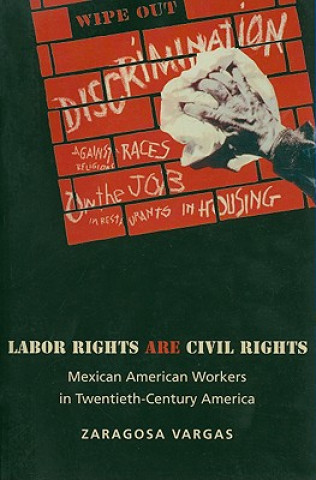
Doručení
Nákupní rádce





Nehodí se? Vůbec nevadí! U nás můžete do 30 dní vrátit
 Dárkový poukaz
V libovolné hodnotě
Dárkový poukaz
V libovolné hodnotě
S dárkovým poukazem nešlápnete vedle. Obdarovaný si za dárkový poukaz může vybrat cokoliv z naší nabídky.
Labor Rights Are Civil Rights
 Angličtina
Angličtina
 112 b
112 b
30 dní na vrácení zboží
Mohlo by vás také zajímat


In 1937, Mexican workers were among the strikers and supporters beaten, arrested, and murdered by Chicago policemen in the now infamous Republic Steel Mill Strike. Using this event as a springboard, Zaragosa Vargas embarks on the first full-scale history of the Mexican-American labor movement in twentieth-century America. Absorbing and meticulously researched, "Labor Rights Are Civil Rights" paints a multifaceted portrait of the complexities and contours of the Mexican American struggle for equality from the 1930s to the postwar era. Drawing on extensive archival research, Vargas focuses on the large Mexican American communities in Texas, Colorado, and California. As he explains, the Great Depression heightened the struggles of Spanish speaking blue-collar workers, and employers began to define citizenship to exclude Mexicans from political rights and erect barriers to resistance. Mexican Americans faced hostility and repatriation. The mounting strife resulted in strikes by Mexican fruit and vegetable farmers. This collective action, combined with involvement in the Communist party, led Mexican workers to unionize. Vargas carefully illustrates how union mobilization in agriculture, tobacco, garment, and other industries became an important vehicle for achieving Mexican American labor and civil rights. He details how interracial unionism proved successful in cross-border alliances, in fighting discriminatory hiring practices, in building local unions, in mobilizing against fascism and in fighting brutal racism. No longer willing to accept their inferior status, a rising Mexican American grassroots movement would utilize direct action to achieve equality.
Informace o knize
 Angličtina
Angličtina
Kategorie




 Jak nakupovat
Jak nakupovat


























